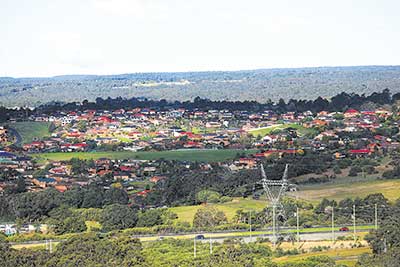A shadow of doubt is being cast over the reliability of funding for Local Government across the nation as budget pressures increasingly mount.
In the lead up to the November Victorian state election, opposition leader Daniel Andrews announced that councils wishing to raise their rates above the Consumer Price Index (CPI) increase, would have to appeal to the independent Essential Services Commission (ESC) to justify the decision should Labor win.
“Under Labor, councils will be forced to limit rate rises and detail where every dollar will be spent, because ratepayers deserve a fair go.
“This policy also sends a clear message that we expect councils to keep their rates in line with CPI, any increases above this must provide a clear benefit to ratepayers.”
Currently the ESC monitors gas, water and electricity prices.
If the ESC were to determine that a rate rise is unreasonable, it would recommend to the minister for local government that the increase be blocked.
However representatives of local government have hit back, labeling the limits as damaging to the future of local government.
“Daniel Andrews has effectively endorsed a failed Kennett reform that has hurt ratepayers for two decades and been a key factor in successive rate rises to address crumbling community infrastructure,” said Councillor Bill McArthur, president of the Municipal Association of Victoria (MAV).
“Voters thought Kennett’s rate rise restrictions in the early 1990s were a great idea until they felt the consequences of this reform.
“There is strong evidence that it severely damaged the development and liveability of all Victorian communities.”
Victorian councils currently maintain $73 billion of community infrastructure.
“Rate rise restrictions leave councils with two main choices – reduce services relied–on by communities or reduce capital spending to maintain assets.
“National studies continue to show the quality of NSW local infrastructure is lower than other states, primarily as a consequence of years of rate capping.”
Former president of the MAV, the Australian Local Government Association (ALGA) and current Mayor of Monash Councilor Geoff Lake also said that the announcement was disappointing.
“Blanket restrictions on the ability of one level of government to operate from one year to the next do nothing to advance more effective outcomes for the Victorian community.
“It is widely acknowledged that rate capping in NSW has crippled local government in that state.
“NSW councils are among the least financially sustainable in the country while their local infrastructure is crumbling around them due to councils being unable to adequately address basic issues.”
An Auditor General report recently predicted that Victoria’s asset renewal gap would grow to $2.6 billion by 2026 without intervention, indicating that councils already do not have enough money to maintain infrastructure.
However the 2014 edition of Budget pressures on Australian Governments report recently released by the Grattan Institute, claims that state infrastructure gaps are being caused by increased spending on road and rail infrastructure.
“States and territories are spending 3 per cent more of their budgets on interest and depreciation for past infrastructure,” said Grattan Institute CEO John Daley.
“This really hurts state and territory budgets already under strain from extra health spending.
“States and territories can only afford to continue their current contributions to infrastructure spending if they post substantial recurrent surpluses to pay for new capital works.”
The Revitalising Local Government report, currently in the hands of the NSW state government, has also proposed rate reforms.
“There is strong support among councils for many of the suggested reforms within the Revitalising Local Government report, and we want to see those recommendations implemented as quickly as possible,” said Local Government New South Wales (LGNSW) President, Councillor Keith Rhoades.
“The first recommendation we would like enacted is a review of the NSW rating system, including current inequitable rate exemptions, which reduce council revenue by millions of dollars each year.”
The rating improvements are wide ranging and include adjusting the value of rates paid to address equity issues, such as the relatively low rates paid in the more affluent suburbs of Sydney.
Also addressed in the report is increasing rate revenue from apartments, greater use of special rates, the extent of non-rateable land and simplifying the use of minimum rates.
The recently released Commission of Audit Report authorised by the Federal Government has also received widespread criticism for its vast number of proposed budget cuts in order to return a surplus.
One such cut would end federal government funding to local government, including the end of Financial Assistance Grants (FAGs) and the Roads to Recovery (R2R) program.
The FAGs program provides a total of $2.2 billion per annum to local councils nation wide and has existed for almost 40 years.
The Australian Local Government Association (ALGA) has said that ending this program would have a catastrophic impact on local infrastructure and services.
Both major parties had promised to continue to fund the R2R program until 2019, and its cancellation could see general road safety and access suffer a major decline, particularly in regional communities.
“While the Government is now considering the report and its 86 recommendations, councils must use the opportunity to send a clear message to the Australian Government that federal funding for councils must be protected by attending next month’s National General Assembly of Local Government to make sure that the Australian Government gets the message,” said ALGA President, Mayor Dr Felicity-ann Lewis, in advance of this weeks budget.
“Last year local government was preparing to fight for a referendum to secure federal funding of councils.
“Less than twelve months later it appears our worst fears were fully justified with local government facing the loss of up to ten percent of its funding.
“Tragically, this may well spell the end for many smaller rural councils which are dependent on federal funding.”








